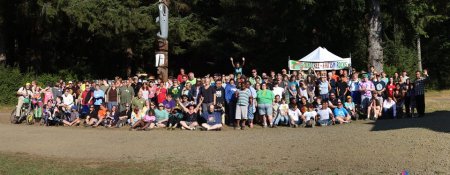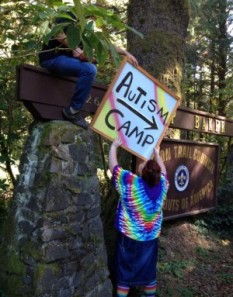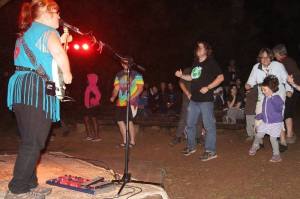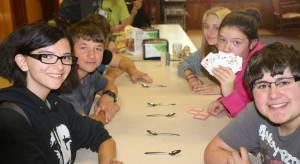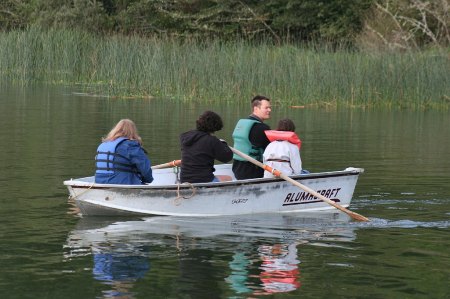The puzzle piece. It
has been used as a symbol to represent autism for decades. But why
was that symbol chosen? What does it mean to people? And for that
matter, why are some of us so offended by it? Let me attempt to
answer these questions.
The puzzle piece was
first adopted as a symbol in 1963 by the National Autism Society
(NAS), after a presentation titled “Perspectives on a Puzzle.”
The reason given was that it was distinctly different from the logo
for any other charity or organization at the time, as far as they
could ascertain. Since then, other autism charities have adopted
variations on it.
So what does the
puzzle piece represent, exactly? It's entirely possible that the NAS
meant it as an entirely innocuous logo. However, it can be difficult
for a symbol like that to not have any meaning, even if it isn't
intentional.
The first thing that
I see is that it presents people as puzzles that need to be solved,
or even that autistic people are puzzling. I find this to be a
ridiculous notion, since all people are unique and complex
individuals. I also find it to be insulting that a certain group of
people are singled out as being in more need of being solved.
Now, some people
will point out that the people are not the puzzle. They will say that
the puzzle is autism itself. I don't feel that that's much better.
For one, it seems like a variation on the same thing. All neurotypes
are complex, and difficult for others of different neurotypes to
understand. That even includes neuronormal. Just because something
happens to be in the majority, that doesn't mean it's less difficult
for an outsider to understand.
Perhaps it may have
made sense when the puzzle piece was first used. At the time, there
weren't many diagnosed autistic people who had the ability to
express their thoughts, so it would have made sense that people
wouldn't have had any way to know how their minds worked.
In modern times,
though, the same traits have been found in much more verbal people. In
addition, technology allows even nonverbal people to speak what's on
their minds. Many people in both these categories are attempting to
put our voices out into public awareness. We are trying to educate
people about ourselves. We do understand the frustration that many
parents go through. Those of us who are as opposed to a cure as I am
have a stake in whether parents fully understand their children. We
are working hard toward that goal.
The other thing I
see in the puzzle piece is the implication that there is a missing
piece. It feels as if people are saying that the reason we're
different is that there is something we don't have that everyone else
does. Most autistic people feel like complete human beings. Further,
many of the organizations that use puzzle piece logos are searching
for some sort of a cure. It makes no sense to complete the whole by
removing something.
Several people have
told me that maybe autism is the piece that completes society. Maybe
the puzzle piece could represent that. It is true that it takes all
types of brains to create a complete and functional society. However,
if that's what the puzzle piece represents, shouldn't all neurotypes
be symbolized as puzzle pieces?
I hope that has
explained why some of us are repulsed by this symbol. So now what?
What kind of symbol would be more appropriate? One thing I have
noticed is that I have never seen an autistic-run organization that
uses a puzzle piece as it's logo. There are many good ideas out
there. My personal favorite is the infinity symbol.
Image
from commons.wikipedia.org
The infinity was
adopted as an autistic pride symbol by Aspies For Freedom. Although
the founders are controversial figures within the autistic community,
I feel that in this case they chose well.
The infinity symbol
was chosen because it represents logic, intelligence, and continuity.
It represents something that has always been and always will be a
part of this world. The representation is simple and easy to look at,
but the meaning is very complex. In short, while the puzzle piece
represents everything negative about autism, the infinity represents
the positives of the autism experience.
Do you have any
other ideas for a symbol?


